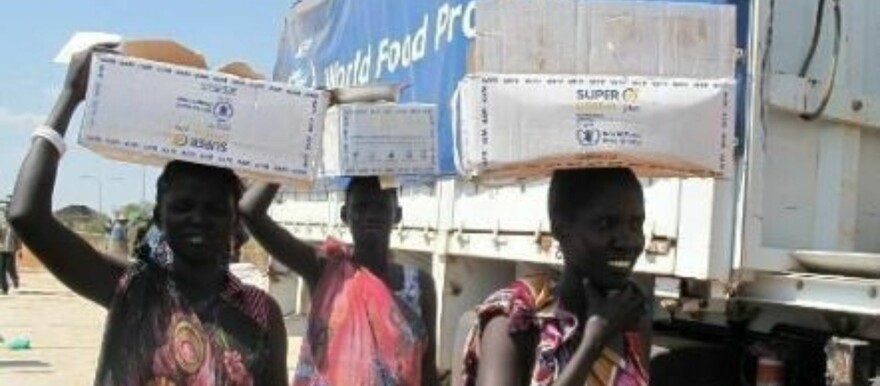About 500 returnees from Sudan and Internally Displaced Persons from Abyei received food aid from the UN World Food Program (WFP) for the first time after fleeing conflicts.
Speaking to reporters at the distribution site at Akuom Boma of Aweil East County of Northern Bahr el Ghazal State, Yolanda Ille Felix, the deputy head of WFP’s Aweil Field Office, said around 130,000 people are going to benefit from the general food distribution.
“Normally our lean season starts in May and that is when the food basket is finished but now the situation is bad and we started distribution in January,” she said. “We served these people one-month food rations. In our food basket, we have cereals, pulses, salt and oil. Additionally, we also provide blanket supplementary feeding for women who are pregnant, girls, and lactating mothers and children under five.”
Ille revealed that they are providing supplementary feeding to the displaced persons to prevent malnutrition because when the food security situation of a place is bad, many children become severely malnourished.
She however complained of a lack of resources, stressing that they have removed some locations from their priority lists due to funding shortfalls.
“Resources are not there of course so in Aweil East WFP has prioritized the locations based on the vulnerability of the place but resources are not enough,” she stated.
For her part, Joyce Jokudu Amos, 30, a mother of six from Abyei who arrived six months ago, said it is the first time she has received food since she arrived.
“I used to collect firewood and water for sale to raise some money to buy food,” she said.
Jokudu complained that the food she received would not be enough to feed her family for two weeks.
Meanwhile, Muna Abdallah, 30, a mother of six who returned from Khartoum said she has been in the area for the last three months without receiving any support.
“We have just come to South Sudan and we were issued tokens. Today I received sorghum, cooking oil, salt, and beans but it will not be enough because we have no jobs that can sustain us,” she said. “When we arrived, we were looked after by relatives who shared the little with us.”




